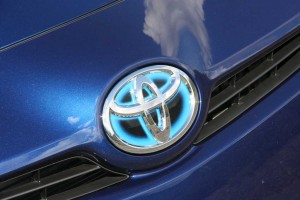
New study suggests that long-time owners may be questioning their loyalty to Toyota. That could be good news for Ford and Chevy.
This could be one of the best months for the U.S. auto industry since the start of the recession, industry analysts report, giving a chunk of the credit to demand driven by Toyota’s hefty new incentives.
The Asian maker reports demand soared 40%, year-over-year, during the first part of the month, and doubled over dismal February. But new research suggests that even with $3,000 givebacks and zero-interest loans, the ongoing safety scandal is tarnishing Toyota’s once-bright image and leading many owners wondering whether to walk – possibly to a brand whose star is fast ascending, Ford Motor Company.
Our latest survey showed “60% saying that Toyota’s image is worse than it was a year ago,” said George Peterson, chief analyst with AutoPacific, Inc. That might not seem especially surprising, considering the almost daily grind of headlines blaring out news of the carmaker’s latest safety problem, but Peterson said there’s a far more troubling trend hidden within the new data.
For one thing, the number of motorists considering a Toyota for their next vehicle has fallen from 54% to just 37%, over the last year, while at the same time, Ford’s consideration factor has soared from 38% to 67%, which Peterson labels “one of the highest (figures) we’ve ever seen.” (Peterson is a former Ford employee – editor.)
Until recently, Toyota traditionally led the industry in terms of the share of buyers willing to put one of its products on their shopping list – (which means they’ll consider a product, though not necessarily wind up buying it). But according to the latest AutoPacific Vehicle Voice consumer study, the Japanese maker’s standing has plunged to fifth, behind:
- Ford;
- Chevrolet;
- Honda; and
- Nissan.
If this data proves true and it is ultimately reflected in sales, it could be particularly distressing for Toyota for several reasons. In an interview with TheDetroitBureau.com, last week, Toyota Senior Vice President Don Esmond admitted it is “a fair assumption” that extensive news coverage has tarnished the company’s reputation. Esmond added his belief that “a loyal customer base” will help it get through the crisis and rebuild demand, though he admitted, “The unanswered question is how difficult it will be to conquest buyers (from competitors).”
AutoPacific’s latest survey of U.S. challenges Toyota’s assumption of a loyal base to rebuild upon. Even among that group, the current crisis is raising troubling concerns about a brand once heralded for its safety and reliability.
Peterson divides Toyota owners into three groups: one is still confident about the brand and its products and ready to both buy another Toyota vehicle and recommend the marque to others. A second group is more skeptical and unlikely to recommend a Toyota. Those in a third group, said Peterson, “feel angry and dissatisfied,” questioning if Toyota has been telling the truth. They are unlikely to be back unless Toyota can take steps to overcome their concerns.
The automaker, Peterson contends, is walking a fine line as it tries to take a more aggressive role in media coverage.
A week ago, Toyota staged a well-publicized news conference to punch holes in the claims of a Southern Illinois University professor who testified before Congress that he could demonstrate a possible electronic flaw in Toyota vehicles that could lead to so-called sudden acceleration. (Click Here.)
This past Monday, the maker went on to discredit a motorist who claimed his Prius surged to 94 mph on a California freeway before being brought back under control. (Click Here.)
But Peterson and other analysts warn that as the safety crisis moves from the front pages and into the courts – with the company facing 100s of potential individual and class action lawsuits – it could be risky to make motorists seem at fault. Indeed, during his own testimony before Congress, last month, Toyota Motor Co. CEO Akio Toyoda promised the automaker would not blame the consumer.
How long the maker will remain in the headlines, and how soon it can truly begin the rebuilding process remain to be seen. But not everyone is as concerned as Peterson.
A conflicting study, by Corporate Research International suggests that only 6.5% of current Toyota owners will not repurchase one of the automaker’s products.
But even that modest decline is troublesome for a company that admits it will have a hard time, in at least the near future, grabbing buyers away from its competitors.
